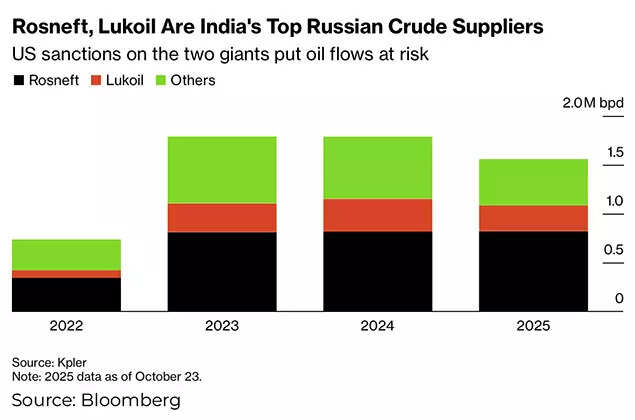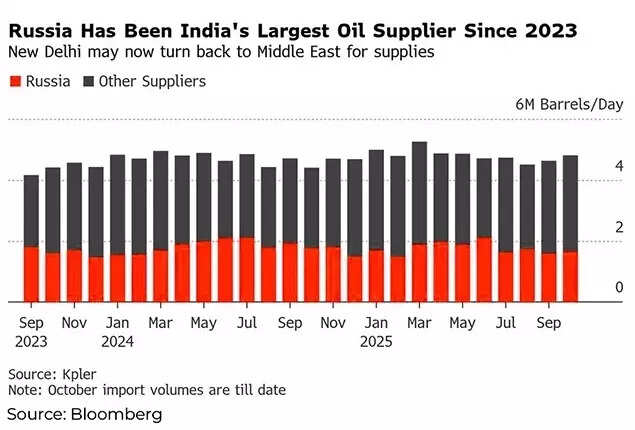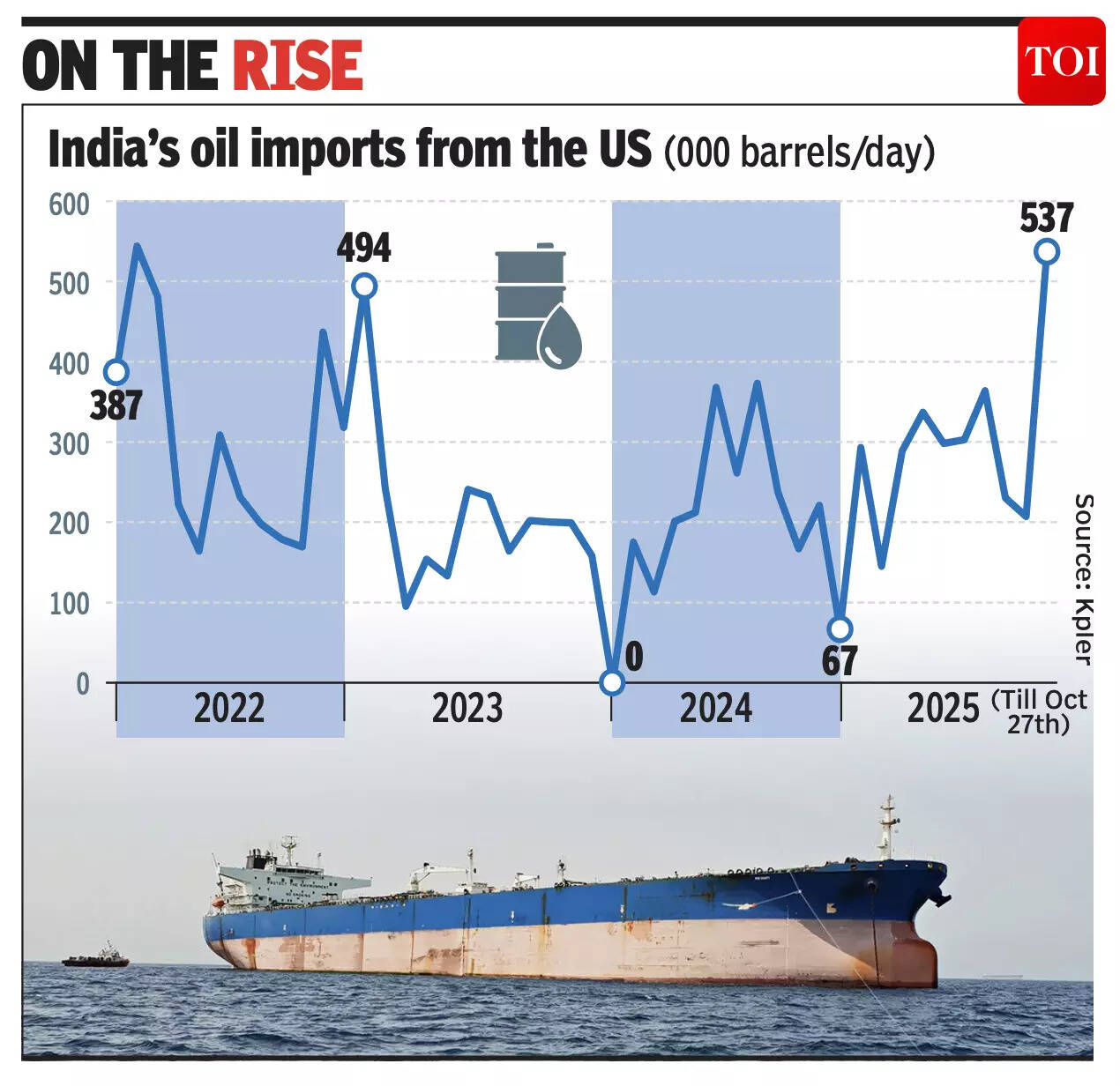Trump sanctions impact on India’s Russian oil trade: Refiners stop placing new orders, await clarity; US crude imports at highest since 2022
Donald Trump sanctions impact: With the US and EU imposing fresh sanctions on Russian oil, Indian oil refiners have stopped any fresh orders of Russian crude. According to a Reuters report, the refiners are waiting for clarity to emerge from suppliers and the government.The sanctions imposed by the European Union, the UK and the United States against Russia over its Ukraine conflict include recent US measures announced on Thursday targeting Russia’s leading oil companies Lukoil and Rosneft.
According to the International Energy Agency, India purchased 1.9 million barrels per day during the first nine months of 2025, constituting 40% of Russia’s total exports.Also Read | Easing trade tensions with Trump: India’s crude imports from US surge to highest since 2022; diversification away from Russian oil?Between April and September, India’s Russian oil imports decreased by 8.4% year-on-year, attributed to reduced discounts and limited supplies. During this period, refiners increased their oil procurement from Middle Eastern nations and the United States, as indicated by trade sources and shipping information.In the meantime, to fulfil their crude requirements, certain refineries are now sourcing from spot markets, sources were quoted as saying.Public sector refiner Indian Oil Corporation has released a tender for oil procurement, whilst Reliance Industries has increased its spot market acquisitions, sources said.
India set to reduce Russian oil buys?
Indian oil companies are reportedly set to significantly reduce Russian oil imports to ensure compliance with newly implemented US sanctions. This development could potentially also eliminate a significant obstacle in securing a trade deal agreement with the USReliance, India’s largest purchaser of Russian oil, announced last week its commitment to adhere to sanctions whilst maintaining existing relationships with current oil suppliers. Reuters additionally reported the company’s intention to stop oil imports from Rosneft.“We have not placed orders yet for fresh cargoes and have cancelled some that were booked from traders with links to the sanctioned entities,” said one of the sources.

Rosneft, Lukoil are India’s top Russian crude suppliers
“We need to ensure that our purchases are not linked to sanctioned entities as banks will not facilitate payments,” a third source said.A separate source indicated their organisation is awaiting confirmation regarding the possibility of securing cargoes from non-sanctioned traders or entities.IndianOil, India’s biggest oil refiner and fuel retailer, announced on Monday its commitment to adhere to international sanctions, whilst not explicitly mentioning the recent US restrictions on major Russian crude exporters Rosneft and Lukoil.

Russia has been India’s largest oil supplier since 2023
Company chairman Arvinder Singh Sahney confirmed their adherence to sanctions imposed by the international community but did not clarify whether IndianOil would cease purchasing Russian crude at discounted rates.Following private sector giant Reliance Industries, IndianOil has become the second Indian refining organisation to declare its intention to observe the latest US sanctions and EU restrictions concerning products refined from Russian oil.Also Read | Trump hits bulls’s eye with US sanctions? Why India, China may stop buying Russian oil – explained
US crude purchases hit highest level since 2022
Incidentally, India has significantly increased its crude oil imports from the United States. According to Kpler data, crude oil imports reached 540,000 barrels per day until October 27 – marking the highest level observed since 2022.A PTI report indicates that these higher import figures demonstrate India’s tactical decision to diversify its oil sources beyond Russia, whilst simultaneously addressing trade discussions with the Trump administration.

India’s oil imports from US on the rise
The report’s statistics suggest that October figures are anticipated to reach 575,000 bpd, with November estimates ranging between 400,000-450,000 bpd, according to US export data. This represents a considerable rise from the annual average of approximately 300,000 bpd.The report, citing government and trade officials, said that Indian refineries have increased their purchases of American crude varieties, specifically Midland WTI and Mars, to diversify their supply portfolio and showcase cooperation with Washington.


